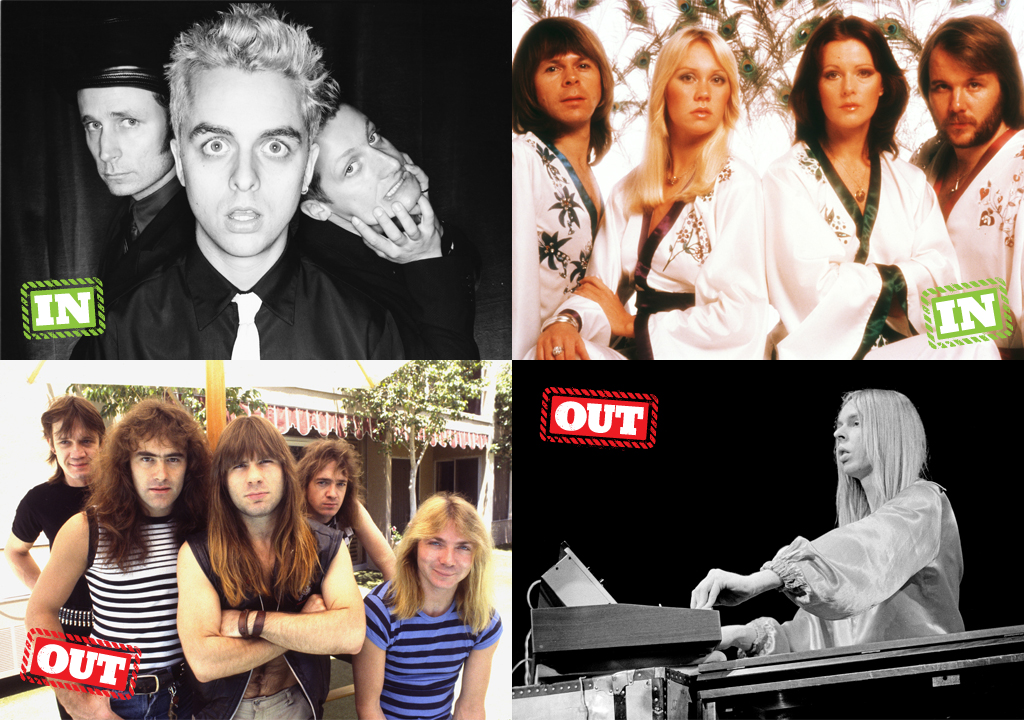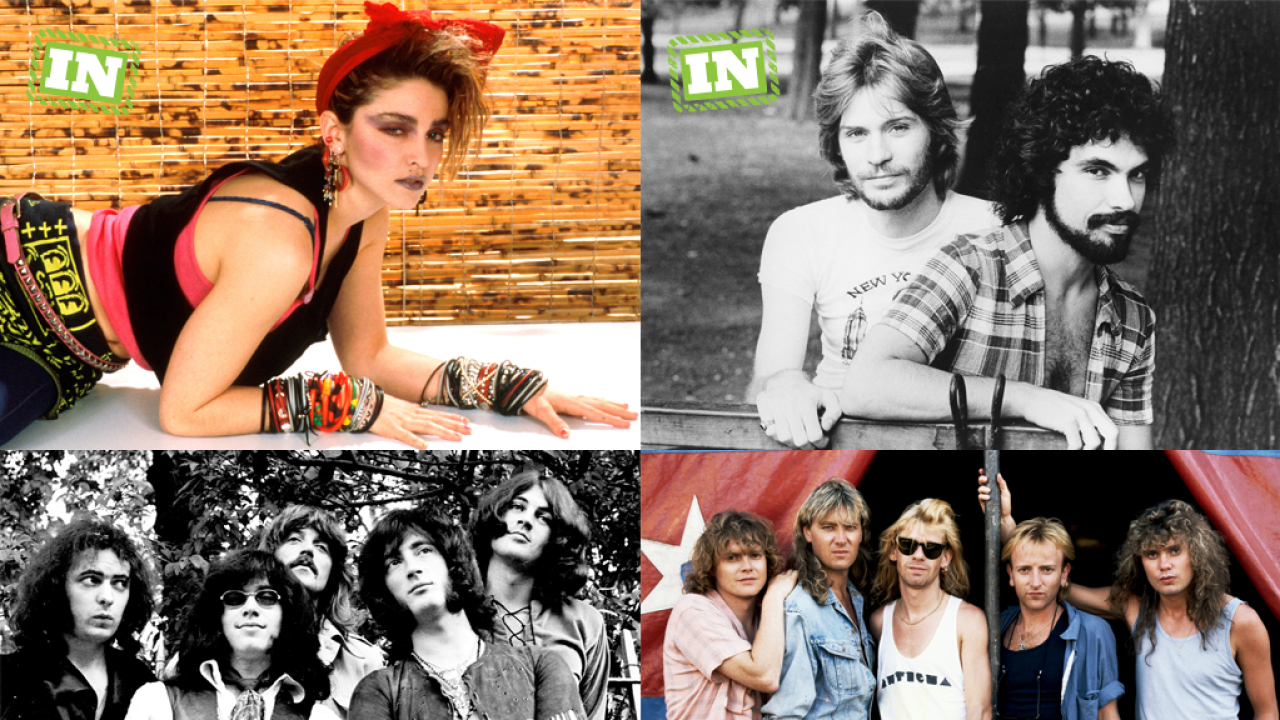Someone at the Rock And Roll Hall Of Fame doesn’t like Deep Purple. Although the band have been eligible for inclusion since 1993, the latest induction ceremony, on April 18, will see them absent once again, while Lou Reed, Stevie Ray Vaughan, Green Day and the Paul Butterfield Blues Band are all inducted.
It’s part of a pattern in which hard rock bands have struggled for entry into what was founded in 1983 as a sort of Valhalla to preserve and promote the best in rock’n’roll. Of the 304 inductees to date, only the very biggest hard rock and heavy metal names have made it in, and even then at a seemingly reluctant trickle. Zeppelin, AC/DC, Queen, Sabbath, Guns N’ Roses and Metallica are there, alongside the likes of ABBA, Hall And Oates and Madonna. But Def Leppard, Motörhead, Yes, the MC5, the New York Dolls, Roxy Music and countless others all remain outside the Hall’s gates, as does pretty much every band from the worlds of metal, prog, British glam and punk.
Deep Purple’s ongoing exclusion has been noted by both their fans and their peers. “It took us so long to even get on the ballot, and there were other groups like Deep Purple and Procol Harum, who I assumed would be voted in as well,” said Geddy Lee of Rush, whose band were inducted in 2013, joining Genesis in the Hall’s lonely prog wing. Purple devotee Lars Ulrich also weighed into the debate about their absence. When asked in 2014 who should be inducted, the Metallica drummer replied: “I’m not gonna get into the politics or all that stuff, but I got two words to say: Deep Purple.”
While their fans are furious, Deep Purple themselves have maintained a diplomatic stance. “I’ve heard quotes of somebody on the [Rock Hall Induction] Committee saying: ‘Deep Purple can’t be in it because they were a one-hit wonder,’” singer Ian Gillan told Rolling Stone. “I don’t know if they were referring to Hush or Smoke On The Water or Child In Time or Highway Star or Perfect Strangers, any of those one-hit wonders that we were. I think it would be undignified for us to enter the fray and stamp our feet and say: ‘Yeah, we don’t need it anyway.’ It’s really an American thing. We don’t really understand it.”
Not everyone is as measured. Def Leppard singer Joe Elliott, whose band have been ignored ever since they became eligible in 2005, shares the view of the Sex Pistols, who described the institution as a “piss stain” and refused to attend the ceremony when they were inducted in 2006.
“I think the whole thing is a load of shit,” Elliott tells Classic Rock. “It’s like the window guy at Harrod’s, the plastic mannequin with the suit on, in a back room: ‘Right, here we go: Bon Jovi, no; Def Leppard, no; REM, oh yes; Mellencamp, U2, Neil Young, Tom Waits. We don’t want the ones that have sold a zillion records that cause havoc in hotel rooms. They’re not cool, because they’re too commercial.’”

Hall of fame divide: Green Day and Abba (in), and Iron Maiden and Rick Wakeman (out)
Our requests for an interview with a Hall Of Fame spokesperson were ignored, although the organisation’s early history, at least, is clear. Ahmet Ertegun of Atlantic Records was behind its foundation in 1983. With 12 veteran music business executives and lawyers, including Rolling Stone founder Jann Wenner, he chose its first inductees in 1986. Its website says it honours “those who have had a significant impact on the evolution, development and perpetuation of rock and roll”. An Induction Committee votes for a longlist (14 names this year), which is put out to a wider ballot of about 600 “artists, historians and members of the music industry” and, since 2012, one ballot vote to the public (narrowing the field to a final seven in 2015).
The Hall Of Fame’s reputation for unnecessary mystery is maintained when it refuses to tell CR the names and number of Committee voters, or how they arrive at their decisions. The unofficial Hall Of Fame website Future Rock Legends, though, lists a 2014 Committee of 41 names. Bruce Springsteen’s manager Jon Landau has been Chairman since 2006, having been vice- or co-chairman since 1992. The remaining members include a mix of US rock journalists, music executives, managers, PRs, historians, plus seven musicians, the latter including Robbie Robertson, Steven Van Zandt, Tom Morell and The Roots drummer Questlove.
Although Wenner no longer votes, he remains chairman of the Hall Of Fame Foundation, and its Induction Committee meet in Rolling Stone’s New York office. He and seven of the journalists on the committee are current or former critics there. Two Springsteen bandmates, his manager, and his biographer and brother-in-law Dave Marsh are voters. Sifting through the names and tastes of those listed, there is a heavy skew towards a baby-boomer view of music history that Rolling Stone and The Boss would recognise, with some appetite among younger journalists for hip-hop.
“When you get a gold disc it’s because 500,000 of your fans have bought one of your records,” says Joe Elliott. “When you get in the Rock And Roll Hall Of Fame, some c**t you’ve never heard of has decided, reluctantly, because his housekeeper’s been bashing at him for fucking six months. ‘Oh, let’s just put them in so she’ll shut up.’ It’s bollocks.”
In reality there’s no conspiracy against Deep Purple or Def Leppard or any of the other bands left out in the cold, just a matter of the collective taste of the induction committee. In a rare moment of transparency, former Rolling Stone journalist Dave Marsh taunted Kiss before their much-delayed, bad-tempered 2014 inclusion: “Kiss will never be a great band, and I have done my share to keep them off the ballot.”
Ian Gillan may be pleased to know that Marsh would have preferred Deep Purple. But with the Induction Committee’s membership as it is, hard rock’s long wait outside the Hall Of Fame looks set to continue.

